Presentation

DESIGNA 2024 + CITIZENSHIP
International Conference on Design Research
24 and 25th October . FAL—UBI . Covilhã . Portugal
In a time characterized by the ecological emergency, the effects of economic neoliberalism and the constant threat to fundamental human rights, Design has been embracing causes that, although departing from its project matrix, break with disciplinary circumscription and many academic and professional conventions that have characterized it. However, many areas of traditional Design activity persist and coexist with progressive procedural hybridization, opening themselves up to contamination, but also nurturing other areas of cultural and economic action that are fundamental to contemporary urban life.
Design relates to multiple aspects of life in common, mediating relationships and projecting responses to pressing Citizenship issues, sometimes assuming a great ideological and political focus. Hence, the practice of Design in contemporary society demands a permanent and constant critical capacity in the face of the present, whether in professional responses or in its clear and recognized performance in formulating and articulating changes in social habits, imposed by the adoption of new values, motivated by the effects of austerity, climate change, pandemics or migration, among others.
This edition of DESIGNA aims to bring together, highlight, and discuss contributions of Design to Citizenship, both in the sphere of its relationship with citizens, individually considered, and in this declared and admittedly political perspective. On the other hand, in line with previous editions, the aim is to identify opportunities for new activities and design practices, generating responses to complex emerging problems, both from an ecological and geo-strategic point of view, reconciling this scale with the public and private sphere of individual action. The natural constitution of Design as an academic and scientific field depends on the ability to interpret and react to these cultural changes, whose economic and technological implications alter the epistemological framework of Design, its teaching, and its practice.
DESIGNA 2024 is an in-person international conference which will take place on October 24th and 25th, 2024, at UBI, Covilhã, Portugal, aimed at the presentation and discussion of articles, research results, and projects, encompassing workshops, book launching, and the inauguration of exhibitions in the wide field of Design as well.
© DESIGNA 2024Program
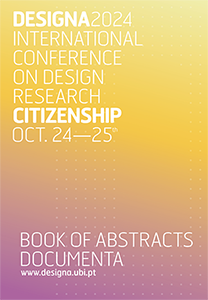
[ FULL PROGRAM + BOOK OF ABSTRACTS / PDF ]
OCT 24 | THURSDAY
09h00 Registration [ open in permanence ]
Anfiteatro da Parada
10h00 Welcoming Session
Anfiteatro da Parada
Mário Raposo, Rector of the University of Beira Interior
André Barata, President of the Faculty of Arts and Humanities
Sara Velez, President of the Arts Department
Francisco Paiva, Scientific Coordinator of iA* Arts Research
Catarina Moura, DESIGNA’s Scientific and Executive Committees
10h30 PLENARY SESSION /01
Anfiteatro da Parada
Multispecies citizens, clothing, design and nature
Kate Fletcher
Royal Danish Academy, Copenhagen, Denmark
Oslo Metropolitan University, Oslo, Norway
Clothing consumers as citizens, and the role of design
Ingun Grimstad Klepp
Consumption Research Norway
Oslo Metropolitan University, Norway
12h00 Lunch
14h30 PLENARY SESSION /02
Anfiteatro da Parada
Cold Sweat — A case study on how crucial art and design are in overcoming enormous difficulties
Cristina Filipe
CITAR, Catholic University of Porto, Portugal
15h30 Coffee break
16h00 PARALLEL THEMATIC SESSIONS
THEORY AND CRITICISM /01
Anfiteatro 2.12
HISTORY AND EDUCATION /01
Sala dos Conselhos
DESIGN AND SUSTAINABILITY /01
Anfiteatro da Parada
VARIA /01
16h00 WORKSHOP
Additive Manufacturing in Fashion: a new perspective
João Victor Correia de Melo
Pontifícia Universidade Católica do Rio de Janeiro - PUC-Rio,
Laboratory of Biodesign DASA/PUC-Rio
17h30 Books & Journals
Anfiteatro da Parada
19h30 Dinner . New Hand Lab
Welcome drink Magusto by Design + Guided visit + Dinner
[ registration required / additional fee ]
OCT 25 | FRIDAY
09h00 Registration [ open in permanence ]
Anfiteatro da Parada
09h30 PARALLEL THEMATIC SESSIONS
THEORY AND CRITICISM /02
Anfiteatro da Parada
COMMUNICATION DESIGN
Sala 2.08
PRODUCT DESIGN
Sala dos Conselhos
FASHION DESIGN
Sala 2.12
11h00 Coffee Break
11h30 PLENARY SESSION /03
Anfiteatro da Parada
Navigating the personal and the political — Understanding Female-Centered NGOs through social design research
Janka Csernák
Moholy-Nagy University of Art and Design Budapest, Hungary
12h30 Lunch
14h30 PLENARY SESSION /04
Anfiteatro da Parada
Did you mean bare life? The Design and Technology of Fortress Europe
Ruben Pater
Designer / Researcher, Netherlands
Bauhaus of the Seas - a Portuguese Vision for the New European Bauhaus
Nuno Jardim Nunes
Técnico, University of Lisbon, Portugal
16h00 Coffee break
16h30 PARALLEL THEMATIC SESSIONS
HISTORY AND EDUCATION /02
Sala dos Conselhos
MULTIMEDIA + INTERFACES
Sala 2.08
DESIGN AND SUSTAINABILITY /02
Anfiteatro da Parada
TEXTILES AND COMMUNITY
Anfiteatro 2.12
VARIA /02
18h00 Conference Closing
Anfiteatro da Parada
Keynote Speakers
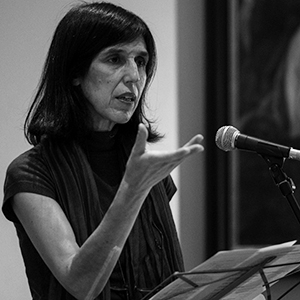
CRISTINA FILIPE
(Lisbon, 1965) PhD in Heritage Studies from the Catholic University of Porto – School of Arts (2018) and researcher at CITAR, from the same School. MA in Arts and Design from the Surrey Institute of Art & Design (2001), with scholarships from the Foundation for Science and Technology and the Calouste Gulbenkian Foundation, respectively. Studied Jewelry at Ar.Co (1984-1987), Gerrit Rietveld Academie (1987-1988) and at the Royal College of Arts (1992). Has taught on the Jewelry course at Ar.Co (1989-2015), which she directed between 2004 and 2015, and at ESAD, Matosinhos (2001-2007) and was a guest teacher/artist at multiple international schools and examiner of several master's and doctoral theses. Received the Susan Beech Mid-Career Artist Grant from the Art Jewelry Forum (2017) for the book “Contemporary Jewelry in Portugal. From the Avant-Gardes of the 1960’s to the Beginning of the 21st Century” (2019). Has exhibited internationally since 1984. Her works are present in several private and public collections, namely at MUDE – Museum of Design and Fashion, Francisco Capelo Collection and at the National Museum of Ancient Art. Since 2005, she has been a programmer and curator of exhibitions, symposia and colloquia nationally and internationally. Has founded and been president of the board of PIN – Portuguese Association of Contemporary Jewelry (2004-2023). Creator and general curator of the 1st Lisbon Contemporary Jewelry Biennial – Suor Frio (2021). Author of several papers and essays, editorial and scientific coordinator of the book/catalog “Suor Frio” (2022) published by PIN, MUDE and SCML and author and scientific coordinator of the “J” collection published by Imprensa Nacional – the 1st volume (Tereza Seabra) will be released in 2024.
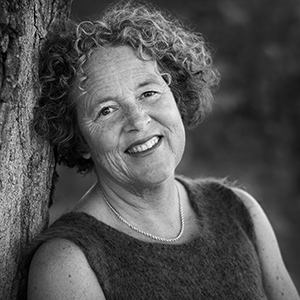
INGUN KLEPP
Professor in clothing and sustainability, educated in Ethnology with a background in sewing, weaving and textile chemistry. Since 1999, she has been working with clothing and textiles research at Consumption Research Norway. She has been essential in developing the research field through advancing methods, projects, knowledge and discourse about clothes and their role in society and our lives, including clothing habits, local production and use, laundry, lifespan, product development and value chains. Ingun actively shares her knowledge in the media, through exhibitions, debates, and popular books and articles. See more: Home - Clothing research (oslomet.no)
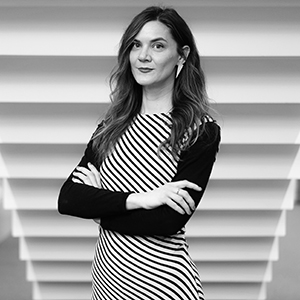
JANKA CSERNÁK
Janka Csernák (DLA) is a social designer and researcher at Moholy-Nagy University of Art and Design Budapest. Her doctoral research, completed in 2024, focused on the topic of gender equity within social design, investigating disadvantaged young female communities specifically. Her track record as a market-based product and concept designer and curator for diverse audiences has informed her years of working in social design since 2015. Her research focuses on social design in the context disadvantaged groups, gender equity, participatory design, design ethics, and speculative design. Besides her research work focusing on gender equity and social design, Janka Csernák regularly teaches multidisciplinary social design courses in Zagreb (ALU), Gent (KASK), Tallinn (EKA), and workshops during hackathons and Summer Universities. She is a co-founder of the Social Design Network. She received the Hungarian Design Award for several projects in 2014 and 2015, and the Fondation Jacques Rougerie Award in 2013.

Photo credits: Jack Grange
KATE FLETCHER
Kate Fletcher (PhD) is a Professor at the Royal Danish Academy, Copenhagen and at Oslo Metropolitan University in Norway. Her work, including that on systems change, post-growth fashion, fashion localism, decentring durability and Earth Logic, both defines and challenges the field of fashion, textiles and sustainability. She has written and/or edited twelve books available in eight languages, and in 2022 she was identified by author Margaret Atwood as a visionary. Kate is a co-founder of the Union of Concerned Researchers in Fashion. Her most recent work is about design, clothing and nature.
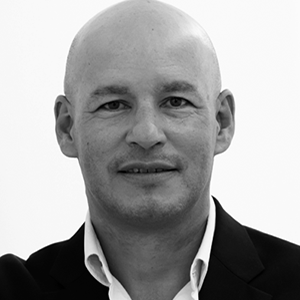
NUNO JARDIM NUNES
Nuno Jardim Nunes is a Full professor at Técnico – University of Lisbon and the President and founder of the Interactive Technologies Institute, the leading HCI and design research institute in Portugal. Nuno is the co-Director of the Carnegie Mellon International partnership and adjunct faculty at the Human-Computer Interaction Institute at Carnegie Mellon University. Nuno strongly advocates the role of human-centric design in participatory culture and sustainability. His research influenced how digital technologies (including sensors, ML/AI, interactive storytelling, and mixed reality) can engage and inspire digital citizens to act sustainably and connect to nature and the broader ecosystems. Recently, the Portuguese Government nominated Nuno to coordinate the working group to propose a vision for Portugal's participation in the New European Bauhaus. His contribution led to the Bauhaus of the Seas manifesto he is currently pursuing as a thematic NEB proposal. Nuno organized several critical conferences of the ACM SIGCHI and published more than 160 peer-reviewed papers in international journals and conferences in the areas of HCI, software, energy, sustainability, design, and service science. He was PI and co-PI of several research projects totaling more than 25M€ from European to national and industry funded.
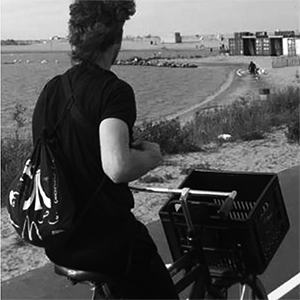
RUBEN PATER
Ruben Pater is a graphic designer at a moment in time when more design is the last thing the world needs. In search for ethical alternatives he designs, writes, and teaches. After working at graphic design studios, he pursued a MA degree at the Sandberg institute in Amsterdam. Since then, he combines journalism, activism, and graphic design under the name Untold Stories to create visual narratives. He is the author of ‘The Politics of Design’ (2016) and ‘CAPS LOCK’ (2021). In his practice, Ruben Pater departs from urgent communication questions towards degrowth, radical equality and solidarity. Rooted in both field work and theoretical research, the work adopts any medium or visual language necessary to inform the public. Questioning the language of luxury that dominates design, as well as the privileged class that is able to work in design, he explores tactics like direct action, scavenging, counterfeiting, and tactical media.
Workshop
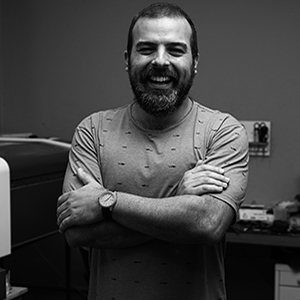
Additive Manufacturing in Fashion: a new perspective
João Victor Azevedo Correia de Melo
Pontifícia Universidade Católica do Rio de Janeiro - PUC-Rio
This workshop addresses three-dimensional electronic technologies applied to recycling, focusing on the identification and analysis of different types of waste and their possibilities for reuse. Functional, structural and formal solutions will be investigated as foundations for innovative practices in the field of design and fashion. The objective is to prepare participants for a new paradigm in 3D technologies, presenting the state of the art and analyzing systems and principles applicable to the reuse of discarded materials. The practice seeks to develop solutions suited to the local context and traditions, whether generic or personalized, focusing on functional, structural and formal aspects. It is hoped that participants will be able to apply these sustainable practices in their future projects, promoting the development of sustainable design.
João Victor Azevedo was born in Rio de Janeiro and is a designer graduated from the Federal Universiy of Rio de Janeiro (UFRJ). Holds a MA and a PhD in Design from PUC-Rio and has worked in the furniture industry, specializing in natural materials. Professor and researcher at the Pontifical Catholic University of Rio de Janeiro (PUC-Rio), where he conducts research on biomimetics, additive manufacturing and distributed recycling, which has been presented at events such as Rio+20 and published in several countries around the world. Founding partner of Maré, a company specialized in the upcycling of materials - such as wood, denim, aluminum and plastic -, producing watches, glasses and accessories through digital manufacturing.Thematic Panels
P1 Theory and Criticism
Chair Júlio Londrim [ jlondrim@ubi.pt ]
— The current practice of Citizenship is globally confronted with multiple disruptive issues such as the environmental crisis, demographic obsolescence, migration, identity tensions, lack of housing, populism, digital disinformation accelerated by AI (Artificial Intelligence), geostrategic interests, wars (cold, hot, economic, and cultural) motivated by the possession of material, energetic, and technological resources. Are these dystopian disruptors a constraint on Citizenship and on the practice of Design, through the induction of misinformation, perceptions, and identity values that only reflect global vulgarity, banality, deep fakes, extremist polarizations, and economic interests from a political agenda of local and global actors?
On the other hand, technological heterogeneity, supported by AI, is a leveraging factor in Industry 4.0 through which Europe is devising its reindustrialization (similarly to other global actors), generating a production characterized by a logic of integration between the physical and digital in the use of Cyber Physical Systems (CPS), which allows the launch of extensively individualized and flexible products into the economy, integrating customers and partners in the Design and creation of value process through a logic of proximity.
Are we facing a window of opportunity in the reinvention of new Design practices? Where specific cultural identities can adapt and reinvent themselves, intersecting with humanist values, a Design where cultural specificities will be an added value in originality and creativity, and where different identities will recognize each other in a citizenship with universal values: can the approach to new project practices in product Design (both physical and digital), supported by Industry 4.0 AI technologies, enable a tool for the rejuvenation of a progressive and inclusive Citizenship?
P2 History and Education
Chair Catarina Moura [ cmoura@ubi.pt ]
— It is through education that the complexity of the world gains meaning, and through history that this meaning gains context. Therefore, the articulation between Design and Citizenship cannot be exempt from these two dimensions. Before being designers, we are citizens and must understand that (1) our vision of ourselves, the world and others tends to be informed by the specificities and limitations of what was and is closest to us; (2) current and future generations will have to design for a world affected by multiple tensions and contradictions, capable of expanding the ethical and political impact of Design on a local and global scale; and 3) history and education of and for Design are not limited to academia, industry, or the concrete dimension of its practices, fully affecting the understanding of what it means to be Human. As educators, we are faced with the need to quickly adapt to new tools and ways of teaching Design, making it imperative to consider that preparing for the urgency of future challenges should not spare the critical analysis of past ones. All considered, this panel is interested in creating opportunities for a multidisciplinary reflection and discussion around different approaches, philosophies, models, processes and methods applied to education in, for, and through Design, giving visibility to new curricula, alternative and emerging educational structures and paradigms, and plural modes of thought, knowledge, and research.
P3 Communication Design
Chair Sara Velez [ sve@ubi.pt ]
— By giving shape to what we intend to communicate, Design acts as an intermediary between the exercises of turning common our experience of the world, which is communication, and that of the organization of our life in common, which is citizenship. Communication Design has, thus, an important role in the creation of the public sphere, fundamental to citizenship. Papers on Communication Design (in its diverse aspects) and citizenship are accepted for this panel. We encourage critical and / or reflexive approaches, but also approaches concerning the practice of citizenship by means of this area of design.
P4 Product Design
Chair Mónica Romãozinho [ monica.romaozinho@ubi.pt ]
— What is the role of Product Design in an increasingly volatile world, marked by cross-cutting problems such as climate change, aging, desertification of inland territories, disinformation, the emergence of a certain radicalism, war, and the asymmetry between poor and rich countries? What challenges does Product Design face, in its different scales of action, given the pressing need to produce more responsibly, equating such important variables as inclusion, sustainability, repair/maintenance, versatility, interaction, and the emotional relationship between subject and object? How are these variables reflected in the design process and in the methods of production and manufacture? Can Product Design contribute to the return of a certain poetry to an everyday life so dominated by consumption? We invite the authors to share the results of their scientific research of a more theoretical, experimental, or applied nature that intersects with these themes and issues.
P5 Multimedia and Interfaces
Chair Joana Casteleiro [ joana.casteleiro.ferreira@ubi.pt ]
— In the current context of deep mediatization, the web 3.0 emergence, the metaverse, artificial intelligence, e-governance, successive economic, political, social, ecological, and ethical crises, design is increasingly assuming itself as a structural activity of citizenship evidencing its ability to reframe the contemporary digital paradigm.
We invite authors to submit communication proposals that correlate, analyze or reflect on user interface design (Graphical User Interfaces, Natural Language Interfaces, Voice User Interfaces, Gesture-based Interfaces, Tangible User Interfaces, Haptic Interfaces, Hybrid User Interfaces, Collaborative User Interfaces, Multimodal Interfaces, or others) or/and multimedia design scenarios (Text, Image, Audio, Video, Animation, Three-Dimensional Content, Web, Mobile, Augmented Reality, Virtual Reality, Mixed Reality) within the scope of citizenship.
P6 Fashion Design
Chair Rafaela Norogrando [ rafaela.norogrando@ubi.pt ]
— Of all the areas of Design, the theme of fashion is the one that most triggers the conflicts of our time in its economic, social and environmental complexity within a world that is trying to be more sustainable. Still, it is a pure reflection of societies and cultures in constant movement in time and in the emotional relationship with the human being.
For this panel, we seek the interfaces with the body and with identity. We accept communications that reflect fashion design through different approaches and contributions, from technologies to a historical, heritage, industrial, anthropological, socio-economic vision or to interfaces with art, music, technology and other possibilities in the scope of scientific research today.
P7 Design and Sustainability
Chair Ana Margarida Ferreira [ margarida.gomes.ferreira@ubi.pt ]
— The Design agenda for Sustainability and Citizenship is linked to a vast and interconnected set of themes. Environmental justice and Human Rights, lifelong learning, inclusivity and education for all, the preservation of biodiversity and natural habitats or new approaches beyond the Anthropocene perspective express the diversity and interest of this broad line of research and action, and offer an infinite and challenging space to discuss, explore and build new knowledge. Within this framework, research of a theoretical or applied nature that addresses citizenship in its contemporary understanding is very welcome and will be seen as an important contribution from the practices and values of Art and Design towards a more sustainable planet and a happier citizenry.
P8 Textile and Community
Chair Rita Salvado [ rita.salvado@ubi.pt ]
— We all have an opinion on textiles, beginning with the choice of the clothes we wear and buy. But textile material, transformed by craft techniques or industrial technologies, records stories that intersect the public and private spheres, and acquires meanings that go beyond commercial value. The textile transformation itself creates a space for experimentation, community and exercise of citizenship. Therefore, this panel invites authors to reflect on how design, in its multiple specializations, can enhance textile materials and modes of production, artisanal and industrial, to create communities, value endogenous resources, renew crafts, and promote civic transformation.Full Paper / Guidelines
SUBMISSION
The full text corresponding to the communication or project accepted to integrate the official conference program must be sent to the Organizing Committee by November 30th, 2024, via email (designa@labcom.ubi.pt).
All files or folders that cannot be sent this way due to their size may be shared using WeTransfer (or a similar platform)
In both cases, reception will be confirmed.
PAPER
A single text file saved with the Author's ID (code automatically assigned by the platform when submitting the initial proposal — e.g. ID101.docx), saved in .docx, .doc, .rtf or .odt, and with minimal formatting.
PDF files will not be accepted.
PROJECT
For projects, we recommend the final submission (for publication) of an extended descriptive report (up to 10,000 words), accompanied (if applicable) by a maximum number of 10 images. When sent (text and images), they must be recorded with the Author's ID as well.
Projects may also be made available in their original and specific formats (video, photography, infographics, etc.), in a space created for this purpose on the conference website, if that is the stated preference of the author(s).
STRUCTURE
— ID (submission code)
— Identification of the panel in which the proposal was integrated
— Title
— Full name of the Author(s)
— Professional category(ies)
— Institutional affiliation(s) (if applicable)
— Contact email(s)
— Abstract (up to 300 words) *
— 3 to 5 keywords
— Text (up to 15,000 words, in any of the working languages) **
— Captions, indicating source and credits, must be placed in the intended location for insertion of the respective images, graphs or tables, together with the identification number with which each of these elements is recorded.
— Footnotes must be listed at the end of the text, before the Bibliographic References
— Bibliographic References ***
* The abstract included in the final version of the paper does not correspond to the extended abstract initially submitted for evaluation of the proposal. It will now be a condensed version of it (up to 300 words).
** Portuguese, English or Spanish
*** Following the norms of APA 7th edition
IMAGES, GRAPHICS AND TABLES
Images, graphics, and tables (max. 10) must be sent in separate files or in an autonomous folder, saved with the same ID and numbered in sequence (e.g. ID101-01.jpg, ID101-02.jpg, etc.).
They can be saved in .jpeg, .tiff or .png, guaranteeing the necessary quality for printing.
Graphics and tables must be sent as images, following the instructions above.
FINAL REVIEW
The Scientific Committee will review and validate the full versions of the submitted papers and projects, notifying the author(s) if changes are deemed necessary.
The altered version should be returned to the Organizing Committee within 15 days from the date of this notification, by email (designa@labcom.ubi.pt).Registration
REGISTRATION FEE
- Professor, Researcher or Professional with accepted communication — €130
- PhD or Master's Student with accepted communication — €70
- UBI Professor, Researcher or Student with accepted communication — Free
- Member of the Scientific Committee with accepted communication — Free
- Audience (without communication, with Conference support materials and certificate of participation) — €30
- Audience (without communication, with certificate of participation) — €5
- Authors with accepted communication who are not responsible for the presentation — Free
- Audience (without communication, without Conference support materials and without certificate of participation) — Free
REGISTRATION PROCESS
Registration is mandatory for participants covered by categories 1 to 6 (listed above). If the accepted communication proposal was submitted by more than one author, registration must be made by the first Author or, alternatively, by the person responsible for the presentation during the Conference, by September 10th, 2024.
Formalizing the registration requires sending (via email: designa@labcom.ubi.pt) proof of payment of the stipulated fee, accompanied by the following information:
- Full name
- Institutional affiliation
- Profession or occupation
- ID assigned to the submitted proposal (if applicable)
- Contact email
- NIF (Identification Number for Tax Purposes) to include on the receipt
- Address to include on the receipt
- Students must attach proof of enrollment
PAYMENT [Bank Transfer]
Bank: Caixa Geral de Depósitos (CGD)
Name / Company: Universidade da Beira Interior
Address: Avenida Marquês d'Ávila e Bolama, 6201-001 Covilhã, Portugal
Account no: 0270021357230
IBAN: PT50 0035 0270 00021357230 64
BIC SWIFT: CGDIPTPL
MORE INFO
For further information, please contact:
Catarina Moura [designa@labcom.ubi.pt]
Mércia Pires [+351 275 242 023 / ext. 1201]
AUTHORS
Authors with an accepted paper or project, to be presented orally at the event, must necessarily formalize their registration and pay the corresponding fee, which entitles them to, among others: (1) Be included in the official Conference program; (2) Receive supporting documentation and materials; (3) Obtain certificate of participation; (4) Publish in the Conference proceedings and/or in other publications, upon proposal from the Organization.
Proposals signed by two or more authors: only the 1st Author or the person responsible for the presentation pays for registration. The remaining authors can attend the Conference free of charge, unless they wish to have access to support materials and/or certificate of participation (registration + payment of the fee indicated above).
EXEMPTIONS
Members of the Organization and of the various Committees, Guests, Professors / Researchers / Students / Employees of University of Beira Interior, and general public who wish to attend the Conference are exempt from paying the registration fee. If any member of the Scientific Committee has an accepted communication or project, they must formalize their registration by submitting the information required above (without proof of payment).
EXTRAS
The registration fee does not include lunch or dinner.Call for Papers+Projects
DESIGNA 2024 (8th edition) invites the submission of original communication proposals or projects with a seminal profile, framed by the relationship between Design and Citizenship, and indexed to one of the conference’s thematic panels:
P1 Theory and Criticism
P2 History and Education
P3 Communication Design
P4 Product Design
P5 Multimedia and Interface
P6 Fashion Design
P7 Design and Sustainability
P8 Textile and Community
EXTENDED ABSTRACT (.rtf, .doc or .odt)
The extended abstract of communication proposals or project presentations must not exceed 2500 words and may be written in Portuguese, English or Spanish.
It should include title; indication of the proposal’s corresponding thematic panel; theme and its relevance for this edition of the Conference; question and/or hypothesis to be explored; conceptual and methodological framework; expected results (if applicable); 3 to 5 bibliographical references; and up to 5 keywords. All these elements are included in the limit of words.
The extended abstract should be a developed proposal, presenting its evaluators / reviewers with a clear explanation of the author(s)' intentions regarding the submitted proposal.
SUBMISSION OF ABSTRACTS
The extended abstract must be submitted electronically, by June 1st (1st Call) / June 30th, 2024 (2nd Call), through the submission platform found on the conference’s website (www.designa.ubi.pt). Each proposal will be automatically assigned an identification code which will allow it to be anonymously assigned to two scientific reviewers. This code (ID) will also be necessary at different moments to identify the submitted proposal until the dates of the Conference.
In order to guarantee the necessary anonymity, the submitted file must not contain any element that allows the identification of the author(s), under penalty of exclusion. This information must only be provided when filling in the data requested on the submission platform.
Each participant may submit 1 proposal as main author and up to 2 additional proposals as secondary author. The registration fee corresponds to the main authorship of each proposal accepted to integrate the final program of the event.
BLIND PEER REVIEW
The reviewing committee will analyze the extended abstracts within a double blind peer review process, selecting those that demonstrate relevance, originality and suitability to the theme and objectives of the conference.
Proposals that do not meet these criteria will be excluded and should not expect notification of refusal.
NOTIFICATION OF ACCEPTANCE
Authors with a selected communication or project proposal will be notified of their acceptance by June 30th (1st Call) / July 30th, 2024 (2nd Call).
FULL VERSION OF THE PAPER / PROJECT
The full version of the paper / project must be sent by November 30th, 2024, following the Publishing Guidelines set out on the conference page. Failure to meet this deadline will result in the exclusion of the paper from the conference proceedings.
REVIEW OF THE FULL VERSION
Once received, the full version of the paper / project will be submitted to the appreciation of the Scientific Committee. The authors may be notified of necessary changes (to be submitted within fifteen days after receiving this notification) as a condition for its publication.
POSTER
Proposals that are not selected to be part of the panels in the oral communication format, but that meet the minimum arbitration criteria, may be included in the conference program as posters. The deadlines for the submission of posters for presentation and publication are the same applied to communications and posters.
The guidelines for the presentation of posters during the event will be communicated to the author(s) if they are included in the final program of the conference.
REGISTRATION
Author(s) with an accepted communication or project must register by September 10th, 2024 (following the instructions on the conference website), thus confirming their interest in being part of the official program, as well as their presence at the event.
ORAL PRESENTATION / COMMUNICATION
The communication must be prepared for 15 minutes and can be delivered in Portuguese, English or Spanish.
In view of the international nature of the conference, any visual support to the presentation (e.g. PowerPoint or similar) must be written in English.
The presentation file must be taken by the authors on the day of their communication, saved on a pendrive. All conference spaces will be equipped with a computer and a data show.
The author(s) must inform the Organization (designa@labcom.ubi.pt) about the necessary technical requirements for their presentation (e.g. VGA / HDMI adapters), so that they can be made available.
PRESENTATION / PROJECTS
Projects can be presented orally as communications (following the instructions of the previous point) or, if the format so warrants, displayed in a space reserved for this purpose. This information must be sent to the Organization (designa@labcom.ubi.pt) by September 15th, 2024, so that the necessary conditions for this exhibition can be assessed.
PLEASE BE MINDFUL OF THE FOLLOWING
1. Requests to change the presentation day and hour after publication of the final version of the conference program may only be considered depending on the exceptional nature of the circumstances that justify them.
2. The publication (on paper or digitally) of the conference proceedings does not represent any additional payment besides the conference registration fee
3. The submission of a communication proposal presupposes the tacit transfer of publication rights to the University of Beira Interior.
4. Obtaining authorization to publish all the images included in papers or projects is a responsibility of the authors.Submission Platform
AUTHORS
REVIEWERS & PROGRAM COMMITTEES
CHAIR OF DESIGNA
Scientific Committee
MEMBROS / REVISORES
Afonso Borges, ID+ Universidade de Aveiro PT
Aidan Rowe, University of Alberta CA
Alastair Fuad-Luke, University of Bozen-Bolzano IT
Aline Monçores, FAL Universidade da Beira Interior PT
Anabela Gradim, FAL Universidade da Beira Interior PT
Ana Margarida Ferreira, Universidade da Beira Interior PT
Andreea Palade, West University of Timisoara RO
Benedita Camacho, Universidade Lusíada PT
Catarina Moura, FAL Universidade da Beira Interior PT
Cátia Rijo, Escola Superior de Educação de Lisboa PT
Carmen Bellido Márquez, FBA Universidad de Granada ES
Daniel Brandão, ICS Universidade do Minho PT
Daniel Raposo, ESART Instituto Politécnico Castelo Branco PT
Elena Formia, DA Università di Bologna IT
Elena González Miranda, FBA Universidad del País Vasco ES
Filipe Alarcão, ESAD Caldas da Rainha PT
Flávio Almeida, FAL Universidade da Beira Interior PT
Francisco Paiva, Universidade da Beira Interior PT
Helena Barbosa, DCA Universidade de Aveiro PT
Isabel Cantista, Universidade Lusíada PT
Paulo Queiroz, FBA Universidade de Lisboa PT
Joana Casteleiro, FAL Universidade da Beira Interior PT
Joaquim Paulo Serra, FAL Universidade da Beira Interior PT
João Neves, ESART Instituto Politécnico de Castelo Branco PT
Jorge dos Reis, FBA Universidade de Lisboa PT
Júlio Londrim, FAL Universidade da Beira Interior PT
Marco Neves, FA Universidade de Lisboa PT
Maria de Fátima Mattos, CUML / ABEPEM São Paulo BR
Mário Bismarck, FBA Universidade do Porto PT
Mário Moura, FBA Universidade do Porto PT
Miguel Bandeira Duarte, EAAD Universidade do Minho PT
Miguel Carvalhais, INESC TEC, FBA Universidade do Porto PT
Mónica Romãozinho, FAL Universidade da Beira Interior PT
Nuno Coelho, Universidade de Coimbra PT
Nuno Martins, IPCA Escola Superior de Design PT
Paulo Oliveira Freire Almeida, EA Universidade do Minho PT
Paulo Luís Almeida . FBA Universidade do Porto PT
Pedro Amado, FBA, Universidade do Porto PT
Pedro Oliveira, IADE Universidade Europeia PT
Peter Hall, University of the Arts, London UK
Rafaela Norogrando, FAL Universidade da Beira Interior PT
Raul Cunca, FBA Universidade de Lisboa PT
Renata Pitombo Cidreira, Universidade Federal da Bahia BR
Renato Bispo, ESAD Caldas da Rainha PT
Rita Salvado, FE Universidade da Beira Interior PT
Sara Velez Estêvão, FAL Universidade da Beira Interior PT
Secil Ugur Yavuz, University of Bozen-Bolzano IT
Sofia Leal Rodrigues, FBA Universidade de Lisboa PT
Şölen Kipöz, Faculty of Fine Arts and Design, Izmir Univ TK
Sheila Pontis, UCL University College London UK
Sílvia Barros de Held, EACH Universidade de São Paulo BR
Oscar Tomico, Eindhoven U. of Technology NL / ELISAVA SP
Teresa Franqueira, Universidade de Aveiro PT
Vanda Correia, ESTG Instituto Politécnico de Portalegre PT
Vasco Branco, DCA Universidade de Aveiro PTOrganization + Contacts
SCIENTIFIC AND EXECUTIVE COORDINATION
Francisco Paiva
Catarina Moura
THEMATIC CURATORS
Ana Margarida Ferreira (Design and Sustainability)
Catarina Moura (History and Education)
Joana Casteleiro (Multimedia and Interfaces)
Júlio Londrim (Theory and Criticism)
Mónica Romãozinho (Product Design)
Rafaela Norogrando (Fashion Design)
Rita Salvado (Textiles and Community)
Sara Velez (Communication)
DESIGN / WEB
Daniel Baldaia
Miguel Manteigueiro Thais Longaray
ADMINISTRATION
Mércia Pires (+351) 275 242 023 / ext. 1201
Cristina Lopes
PRODUCTION
iA* Unidade de Investigação em Artes
Grupo de Artes do LabCom - Comunicação e Artes
CONTACTS
website: www.designa.ubi.pt
email: designa@labcom.ubi.pt
UNIVERSIDADE DA BEIRA INTERIOR
Faculty of Arts and Humanities
Arts Department
iA* Research in Arts - https://iartes.ubi.pt
LabCom - Communication and Arts - https://labcomca.ubi.pt
Rua Marquês D'Ávila e Bolama
6200-001 Covilhã - Portugal
GPS: +40° 16' 40.31" -7° 30' 32.30"
website / facebook
© DESIGNA 2024
Calendar
JUN 01, 2024: Deadline of the 1st Call for Papers / Projects
JUN 30, 2024: Deadline of the 2nd Call for Papers / Projects
JUL 31, 2024: Notification of Acceptance
SEP 10, 2024: Deadline for registration of authors with accepted proposals
OCT 01, 2024: Release of the final version of the Conference program
OCT 20, 2024: Deadline for registration of participants without communication
OCT 24-25, 2024: Conference
NOV 30, 2024: Deadline for the submission of full papers